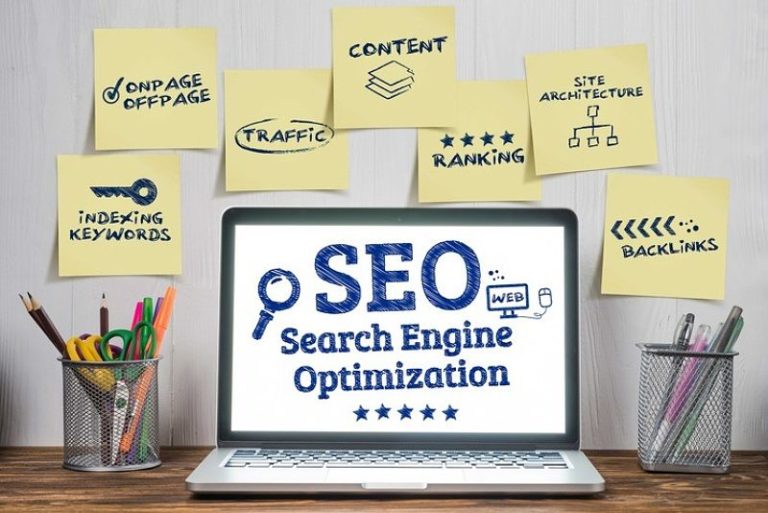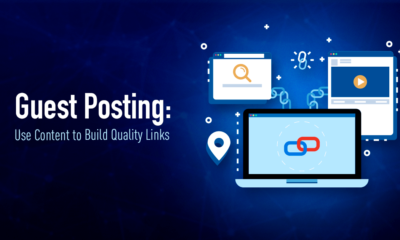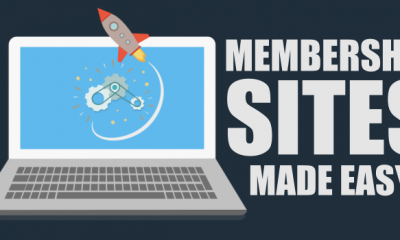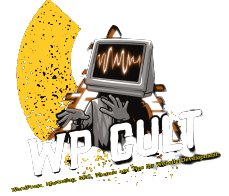Articles
SEO lowdown and making it work to your advantage.

The Internet offers users a wealth of information on virtually every topic imaginable, all within a few clicks of the keyboard. With such a vast amount of information on any given subject. How can you ensure that your article, photo, ad, or other information gets noticed instead of getting lost in the sea of information? The answer is to make use of Search Engine Optimization or SEO. Read on to learn about SEO and how it can bring visitors to your content, increase your web traffic, and possibly result in a new client, reader, or sale.

* What Is SEO Content?
So, what exactly is SEO content, and how can it work for you? SEO is a strategy used in Internet marketing that makes your particular piece stand out from the others and makes it visible in search engines. So that people who are searching for information can find you. Even if you have a top-notch million-dollar website, What good is it if you have no visitors?
Only when potential readers, clients, or customers can locate your page will you have the opportunity to sell or promote your offer. Search Engine Optimized (SEO) content will work for individuals and businesses alike because it allows you to be discovered. The higher you rank in search engine results, the better potential you have to attract those visitors, wrack up those page views, promote your event, or make those sales.
* Understanding Search Engines and How They Relate to SEO
To understand how SEO content works. It is, first, essential to understand a bit of how a search engine works. First, search engines have bots or spiders, like little workers scouring the web to find new and relevant sites/pages; this is called the crawl. Once crawled by these bots, the information will go through a rigorous set of algorithms that will decide if your site/page is worthy and beneficial to the search engine’s audience. Think of it as somewhat of an old-fashioned card catalog at a library before everything was available on the computer. It’s only much faster and much more accurate.
* Internet Bots and Crawling
What is the bot’s job? First, they scour the net for information, websites, photos, files, videos, etc. Then, the bots will put this gathered information into files (basically called indexing), which are then sorted depending on the search engine’s particular algorithm.
Bots will also check how often a page gets updated and how many linkbacks a page or site has; they will grade the quality of the links that link back and their relevance to your site/page.
* Search Engine Ranking and Retrieval- Where SEO Content Matters
This leads us to the final stage, where information is ranked and sorted in the database to be accessed and organized for rankings. The search engines will draw from this database and give you the highest-ranking results among billions of other pages/sites. This is why SEO matters because SEO helps you get discovered (or, as many say, SEO helps get you ranked at the top of the search engine results).
* Making Your Content Rank Higher In the Search Engine Results
There is no magic bullet that works for all types of content and search engines. However, these essential steps will work 99% of the time.
- Quality on-topic content.
- Clear title and description.
- The right amount of keywords.
- On-topic internal and external links. (Marketing Resources)
- Quality links to your content.
- Regular updates.
- Relevance.
- Proper grammar.
- Clarity and Engaging.
In closing, this subject brings high-quality, relevant content. Update regularly and build links both internal and external, both outgoing and incoming. Make it clear and understandable for both the reader and the Spiders (research). Most sites do better as niche sites. This means staying in your lane and becoming an expert. Experts in any given niche receive love from Google and other search engines, making your SEO work more effortless in the future. (bonus: your competitors will link to you as well when they see you as an expert in your field.)
* Too Much SEO Is Known As Keyword Stuffing
Keywords and phrases are beneficial. However, don’t overuse keywords in your content, as this can backfire on you. When you overuse a keyword or phrase, this will hurt your SEO endeavor, making search engines consider your piece spam. This will keep you from being listed or being poorly ranked in the search engine results. This practice of overcompensating keywords/phrases is called keyword stuffing. It might have worked in the past, but it doesn’t work anymore.
In short, if you feel you have used a word or phrase too much but it is still relevant to your story/article/content, try changing them for similar words/phrases.
* Tips For Using SEO Content
Here are some great tips for using SEO content. First, use your keyword several times throughout the piece without overusing it. Places to include the keyword or phrase include the title, first paragraph, and last paragraph a few times throughout the main body of the page, in sub-headings, and in the meta-title. Second, try to keep your keyword density to a certain percentage, depending on how many words the page has. Typically, a 2% to 3% keyword density is considered a reasonable amount. However, some people may prefer a slightly larger percentage.
* Conclusion
SEO in content helps your page rank higher in the search results so that more people will find your page/offer. Making your content visible requires the proper use of keywords and keyword phrasing placed at strategic points throughout your content.
In the end, the whole reason for taking your valuable time and creating content or posting some offering is to get the word out, to gain an audience, or to find new clients/customers. You need traffic for this, and the way to achieve this is through the correct use of SEO.
Guest Post
5 Reasons You Should Never Give Up When Trying To Make Money From A Blog
Did you know that it’s easier to increase your earnings each month from 2K to 10K than it is to go from 0 to 2K? This is because when you reach the 2K per month point you already have a well-oiled machine. Starting from scratch is really hard and it can almost take forever to earn a decent wage from your blog. If people know how long it took before they would be earning enough money to quit their job they might never start blogging. Those are the people who quit before they see any results.
If you want to be one of the people with a well-oiled machine you have got to put the work in now. The last thing you want to do is quit because you might have only been a few months away from hitting the jackpot and you would have never known. You will be making enough money to quit your job one day, even if it takes you 3 years to do it. That is a long time for anyone, so I want to look at some important things that can give you encouragement and will hopefully stop you from giving up.
Little wins when you least expect it
You could be doing your thing and nothing is going right for you. It’s not for your lack of trying because you are putting in a lot of effort, but for some reason, it almost feels like you are going backward. Then one day you get an email asking if you would like to be featured on a big blog. Or you might receive thousands of visitors because the right person has linked to an article you wrote. Those kinds of things can’t be planned for and they just happen somewhere along the way, usually in your second or third year.
You become well known
When you are trying to network with people it is draining. You try your best to be nice to them and it’s not working. They might respond to a tweet or a blog comment, but it’s obvious they never gave it much thought and they were just trying to be nice. They still don’t know who you are. When you stick at it and have been constantly on someone’s radar for a few years they will definitely know who you are unless they are senile. You just have to stick around and wait for the magic to happen.
Sometimes turning up is enough
People get far too stressed out about how much effort is required. I think there are a few people who don’t even get any sleep because they try too hard. Sometimes all you need to do is turn up. I know that might sound strange, but you don’t need to start doing everything possible to succeed. You just need to follow a straight path and keep publishing posts for your readers. Then when you see an opportunity you should snap it up. Sometimes smart thinking beats going crazy.
The snowball effect
Have you ever made a giant snowball? When the snowball is small and it starts to roll it picks up some snow and it gets a little bigger. When it’s huge it will pick up much more snow and it will get bigger a lot quicker. This is what happens with a blog and in the beginning, you are the small snowball. No matter what you do there is only a certain amount of snow you can pick up. When you have been around for years your snowball will pick up much more snow with everything you do.
Becoming better at everything
Everyone who starts out writing doesn’t have their voice, but they find it after a year. They start out doing rubbish videos, but soon the quality will rival anything you see online. Throw in podcasting, marketing, networking, and millions of other things that make people successful. Even though it might seem hard to believe, you get better at things the more you do them, so sticking in for years will mean you turn into a great blogger who can’t fail.
Featured images:
 License: Royalty-Free or iStock source: http://pixabay.com/static/uploads/photo/2013/03/10/06/44/blog-92132_150.jpg
License: Royalty-Free or iStock source: http://pixabay.com/static/uploads/photo/2013/03/10/06/44/blog-92132_150.jpg License: Royalty-Free or iStock source: http://pixabay.com/static/uploads/photo/2012/04/12/12/33/black-29827_150.png
License: Royalty-Free or iStock source: http://pixabay.com/static/uploads/photo/2012/04/12/12/33/black-29827_150.png License: Creative Commons image source
License: Creative Commons image source License: Creative Commons image source
License: Creative Commons image source
Blogging is an art in itself and many people startup with much fervor and then give up citing difficulties. The author in today’s guest post advises us why not to do such a thing. Along with his daily work, Kish Winner Exposes the property to get rich scam seminars to alert people about the dangers online.
Guest Post
Increase Your Chances Of Success By Using A Virtual Office.
The poor economic climate here in the UK has left many small businesses struggling to survive. Many have had to put plans of growth on hold as they simply cannot secure the finance they need from the banks. If you are looking to expand your business in the near future and increase its chances of success, why not consider utilising the services of a virtual office? In this article we will explain how virtual offices can benefit small businesses and help them to achieve their goals successfully.
 Benefit #1: Prestigious business address
Benefit #1: Prestigious business address
The quality of your business address goes a long way when it comes to creating the right impression on your customers. If you use a virtual office in a big city like London, you will immediately become associated with the other successful businesses that reside there. A prestigious business address (courtesy of your virtual office) can help you to build up you customers’ trust in your company and widen your customer base nationally or even internationally. Creating the impression of success is the first step to take and will help you to compete with some of the larger players in the industry you are part of.
Benefit #2: Improved customer service
Today companies simply cannot operate without providing their clients with a good customer service. The better your customer service is, the happier your customers will be. This will make them more likely to recommend you to their peers, helping you to gain more clients and increase your profits. Using a virtual receptionist can help you to improve your customer service, which will in turn increase your chances of success.
Virtual receptionists have the skills, knowledge and expertise to be able to offer your customers the best service possible. Whether you lack customer service skills yourself or simply do not have the time to handle your customers’ calls, a virtual receptionist is the perfect solution. Whilst answering your customers’ calls in a friendly and professional manner, many virtual receptionists also offer extended hours of service. This means that your customers can contact your business at a time that is most convenient to them. Increasing your business contact hours is a great way of pleasing customers, which of course has an impact on the overall success of your business. A good reputation goes along way after all!
Benefit #3: Increased focus on important business tasks
When handling all aspects of their business themselves, many business owners end up having to turn down work and let down clients because they have to work non-profitable tasks into their busy schedules. By working with a virtual office you can outsource some of your non-profitable tasks to a virtual assistant. This will lighten your work load enabling you to spend more time on doing the things you do best, such as securing new clients, growing your business and guiding it into the realms of success.

Conclusion
Building up a positive reputation for your business is the key to success. This is something that is easily achievable with the help of a virtual office. Not only will you be able to secure a prestigious business address for your company which will create a great first impression on potential customers, but you will also benefit from the expertise of virtual assistants in terms of customer service. The more effort you put into creating a good impression on customers, the more likely they will be to recommend your business and use your services again and again. The more people that know about your business, the more potential there is to secure new clients, which will in time lead to higher profits and overall success.
Featured images:
 License: Creative Commons image source
License: Creative Commons image source License: Creative Commons image source
License: Creative Commons image source
Written by Nathan Griffiths who recommends trying out Manchester Virtual Office
Guest Post
Why And How SEO Services Are Extremely Beneficial.
When it comes to SEO services, there are a number of benefits that you’ll find as a business owner. Using SEO services can help make your business become a little more professional and can take your business to new heights in your online marketing efforts, as well as your rankings in search engines.
Some of the many services that you can take advantage of include copywriting, website redesigning, customer service, link building, social media, and many other internet marketing tactics.
These solutions can help in a systematic manner and this can give your business the advantage it needs. These services are provided by a number of companies that offer a wide array of experience in different elements of SEO.
With this experience and working with an SEO company, anything you pay for is going to help your business gain an online presence and can help gain a better reputation.
Beat Your Competition
One of the biggest aspects of using these SEO services is that they are going to give you an advantage that not many other sites currently have. There are a number of websites that have different services working for them but some are not as professional as using SEO services.
Using SEO services enables you to get the advantages that you can’t get by doing things on your own. They offer extensive experience and skills that are needed to turn your website and products into lucrative income.
Time Is Money
Some SEO services give you the guarantee of seeing results in as little as a few days while others may need a little bit more time to deliver high quality results. Some may even say to give them a few months and if that is the case, consider asking what their plans are to help you out.
Hiring an SEO service is going to help cut back on the amount of work you have to do for your business especially if you don’t have the necessary experience or skills to get the work done. This is going to allow you to focus on other aspects of your business. An SEO company can take care of implementing strategies to help make your business stronger.
Price versus Quality
These days, it’s become easier for companies to find SEO services that they can afford. This is because there are so many available that the demand is decreasing so they are offering lower rates. Before you hire an SEO service company, call a few different companies and compare what each one has to offer.
Robert is a web security consultant. He focuses on advising his clients on the best vps hosting services for their business. When not assisting clients, he is either at museums, parks, or reading to expand his knowledge.
-
Tips & Tricks4 weeks ago
WordPress Security Hacks
-

 Pages3 months ago
Pages3 months agoWrite For Us – Guest Post
-
Showcase4 months ago
StylizedWeb.com
-
News3 months ago
How to: Show/Hide any div box with jQuery in WordPress
-
Tips & Tricks2 months ago
Remove the title attribute using jQuery
-
Tips & Tricks7 months ago
How to: show/hide a widget in WordPress with jQuery
-

 Plugins7 months ago
Plugins7 months agoTop Membership plugins
-
Tips & Tricks4 months ago
Limit the characters that display on the_title
















You must be logged in to post a comment Login